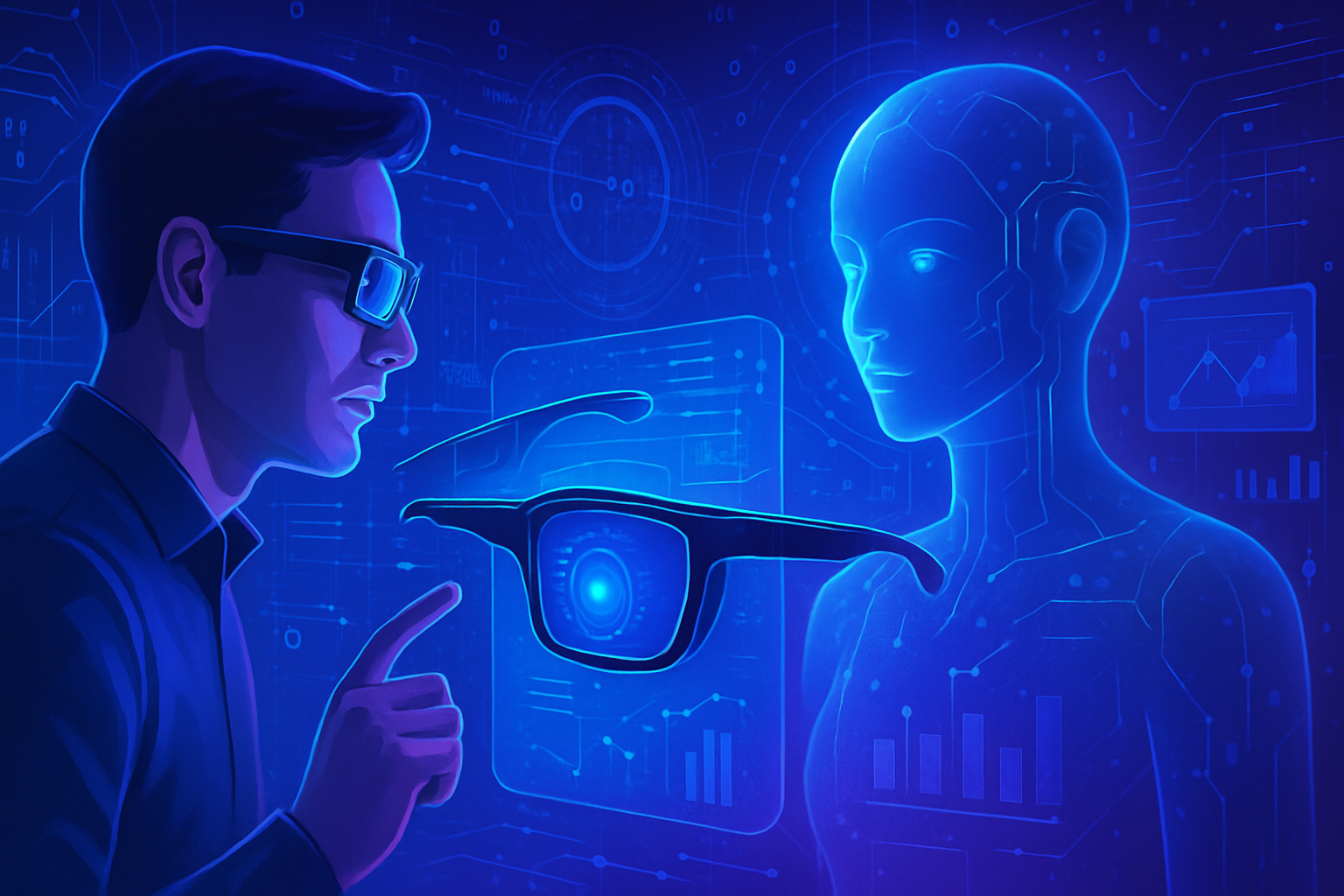The development of smart glasses by Alibaba relies on an unprecedented synergy between technology and human expertise. These devices embody a fascinating convergence, where artificial intelligence adjusts through human input. The responsibility for learning in AI remains in the hands of experts, forming a dynamic ecosystem.
Specialized knowledge in medicine, law, and technology guides the performance of AI models, ensuring a nuanced interpretation of data. Ethical challenges arise in the creation of AI systems, reminding us of the fundamental importance of human input and ongoing evaluation.
A future where *AI* confronts multilayered challenges requires a solid framework of human intervention to ensure accuracy and relevance.
Alibaba’s Smart Glasses and Their AI Integration
Alice, renowned for its technological innovation, is set to launch the Quark AI Glasses by the end of 2025. This groundbreaking device, powered by the company’s unique artificial intelligence models, marks a first venture into the field of wearable devices. The rollout of the glasses will take place in China, a strategic market for Alibaba.
The glasses, designed to transcend mere functionality, incorporate Alibaba’s AI assistant, Quark. This assistant, already available as an application, will be integrated into hardware, thereby facilitating access for a broader range of users. Through this initiative, Alibaba aims to compete with other giants like Meta and Xiaomi, who have launched their own smart devices.
Advanced Features and Interconnectivity
The Quark AI Glasses position themselves as a multifunctional device. Users will benefit from features such as hands-free calling, music streaming, real-time translation, and meeting transcription. An incorporated camera will also allow capturing key moments with unprecedented convenience.
Within Alibaba’s ecosystem, these glasses will offer seamless connections to services like Alipay for payments, as well as price comparisons on Taobao. This integration aims to enhance the user experience while making technology more accessible in daily life.
The Fundamental Role of Data in Smart Glasses
The performance of Alibaba’s smart glasses relies on artificial intelligence systems capable of recognizing images and responding in natural language. The effectiveness of these technologies depends on the massive influx of labeled data, which allows algorithms to train effectively. The interaction between humans and these systems, a process called human-in-the-loop (HITL), plays a crucial role in optimizing outcomes.
The data must be both accurate and varied. Each training phase requires human intervention to ensure quality learning. Henry Chen, co-founder of Sapien, illustrates this principle, noting that human input transcends mere labeling, also requiring informed decisions on complex cases.
The Challenges and Growth of AI in China
The rise of AI in China is accompanied by increasing demand for data labeling, now comparable to that of the United States. While a distinct regulatory framework applies, the diversity of AI projects reflects trends similar to advanced markets. Companies like Sapien, which employ a global workforce, leverage cutting-edge technologies to ensure transparency in payments and contributor engagement.
The transformation of labeling methods, through automation, will not eliminate the need for human intervention. Tasks requiring cultural nuance or specialized expertise continue to be of paramount importance. The evolution of AI technologies toward self-supervised learning could reduce the necessity for human labeling, but the contribution of experts will remain valuable.
Future Perspectives and Ongoing Innovations
Alibaba’s glasses illustrate the convergence between artificial intelligence technology and everyday devices. This innovative product is not only part of the trend of wearable devices but positions the company as a key player in the Chinese digital ecosystem. The complex integrations, combining software, hardware, and human expertise, demonstrate a holistic approach to innovation.
The Quark AI Glasses thus fit into a dynamic where sophisticated technological solutions meet user needs. Human contributions, whether for model development or data refinement, ensure that these innovations can operate responsibly and effectively, addressing contemporary challenges of AI.
Frequently Asked Questions Regarding the Essential Role of Humans in the Evolution of AI for Alibaba’s Smart Glasses
Why is human intervention crucial in the development of Alibaba’s smart glasses?
Human intervention is essential as it allows for refining AI systems through labeled data, thus ensuring that the algorithms can learn accurately and operate responsibly.
What types of human contributions are necessary for the AI of smart glasses?
Human contributions include data validation, performance assessment of models, and providing specific expertise on application domains, helping to avoid contextual errors.
How do we ensure the quality of the data used for the AI of smart glasses?
The quality of data is maintained through peer validation systems, tracking the reputation of contributors, and aligned incentives to ensure consistent and reliable outcomes.
What is the impact of the evolution of AI on the tasks performed by humans in this field?
With the evolution of AI, the role of humans is increasingly focused on complex tasks requiring human judgment, such as interpreting cultural nuances or managing rare data.
How does the expansion of AI in China influence the need for human contributors?
With the rapid expansion of AI in China, the demand for data labeling experts is growing significantly, drawing parallels with the requirements of American and European markets.
How do Alibaba’s smart glasses differ from other devices on the market in terms of human interaction?
Alibaba’s smart glasses integrate AI systems that heavily rely on human contributions for data labeling and development, thereby enhancing their accuracy and relevance for users.
What are the ethical implications related to human data labeling for AI?
The ethical implications involve the necessity to uphold data privacy and ensure fair representation in the data sets used to train AI models.
How does Alibaba ensure that AI projects comply with data protection regulations?
Alibaba adheres to strict regulations like GDPR and data minimization protocols to ensure compliance and security of user data involved in the labeling process.






